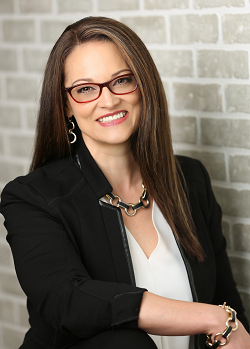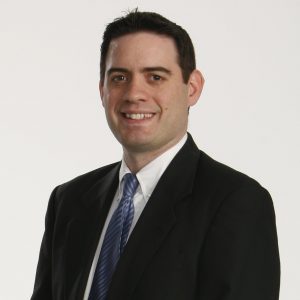
Deborah Reuben, CLFP,
Founder & CEO,
TomorrowZone

Todd Buzard, CLFP,
SVP of Finance,
First American Equipment Finance
Continuous learning is vital for thriving in our rapidly changing world, but not everyone learns the same way. With so many things changing, so much to learn and so many ways to learn, how might we innovate the adult learning experience?
To delve into this subject, I sat down with Todd Buzard, CPA, CLFP, the vice president of the board of directors of the Certified Lease & Finance Professional Foundation and senior vice president of finance at First American Equipment Finance. We explored the significance of fostering curiosity and embracing experimentation to support adult learning. The following is our interview condensed and rephrased for conciseness.
Could you briefly share your background and journey that led you to equipment finance, the CLFP Foundation and your current position?
TODD BUZARD: Starting my career in public accounting and finance as a CPA 20 years ago, I joined a small equipment finance organization called First American Equipment Finance in Rochester, NY. Initially, I worked in operations roles then transitioned back to finance and accounting focus, which became my niche.
In 2014, I pursued the CLFP designation, which is particularly relevant to our industry. After obtaining it, I had the opportunity to teach the accounting section of the Rochester Academy for Leasing and Finance Professionals. This led to an encounter with Reid Raykovich (the CLFP Foundation’s CEO), who saw my teaching abilities and encouraged me to continue. Since then, I’ve been actively involved with the CLFP Foundation, administering academies and eventually joining the board of directors. Currently, I serve as the vice president, driven by my passion for helping others and promoting growth in our industry.
Although my journey has spanned 20 years, it sometimes feels like time flew by in minutes.
What have you observed about the adult learning process through the CLFP Foundation?
BUZARD: Fear of not being proficient or lacking understanding is a significant challenge. Many adult learners have been out of the traditional education routine for a while. After graduating from college or high school, they enter their careers and, after several years, suddenly face the task of sitting for the CLFP exam. It’s an eight-hour exam, which can be daunting for someone who hasn’t taken exams in years. The enormity of the challenge becomes apparent, and individuals often feel overwhelmed, realizing they haven’t encountered something like this in a long time. Adults stepping out of their educational routine and facing a significant exam like the CLFP often experience a sense of unease and apprehension.
What about learning styles?
BUZARD: Today, we have a wide range of learning styles and methods of disseminating information. In the past, it was primarily lecture-style presentations in a room. Although I enjoy that approach, there are now more options available. Self-learning platforms with interactive PowerPoint-style presentations allow individuals to go through the material at their own pace. Additionally, audio and video resources, like YouTube, have become valuable sources of learning.
The variety of teaching mediums empowers individuals to discover what styles work best for them. In the past, there may have been only one dominant teaching method, leaving those who didn’t resonate with it feeling limited. Now, with more choices, people can explore and find approaches that suit their preferences.
How can individuals discover their learning style?
BUZARD: Personally, I believe it’s important to experiment with different methods. Throughout the year, I expose myself to various learning styles. I attend lecture-style sessions, engage in self-directed PowerPoint learning and consume audio podcasts and YouTube videos. By trying out these different approaches, I gain a better understanding of what resonates with me and what I enjoy.
Discovering your preferred learning style requires an investment of effort and time to experiment. Additionally, the nature of the material being taught can influence your preference. For example, in the CLFP program, some students expressed a need for in-person explanation when learning accounting. However, it’s crucial to recognize that individual experiences may vary, and the key is to embark on a personal journey of discovery to find what works best for you.
What are some examples?
BUZARD: In recent years, as we transitioned to a more hybrid work environment, we had to get creative. It can be challenging to gather a large audience of 20 or 30 people in a physical space simultaneously. We’ve explored various approaches, such as delivering presentation-style training to accommodate both remote and in-office participants at the same time. Another method we’ve experimented with is creating recorded presentations for individuals to consume beforehand, and then bringing them together for engaging discussions. This approach transforms the in-person or discussion component into a more interactive experience, rather than solely relying on information dissemination by a subject matter expert.
We’ve implemented several different strategies to enhance flexibility and adopt a hybrid approach, aiming to bridge learning gaps and cater to diverse learning styles.
How can individuals and companies drive learning and development?
BUZARD: We cannot underestimate the significance of curiosity in driving learning and development. Individuals should maintain a curious mindset. It leads you to seek out information and explore various subjects. Remaining curious about life, work and beyond is the first step. It opens new possibilities that you didn’t know existed.
In terms of supporting the learning process, companies should actively encourage curiosity among their employees, discussing its benefits and sharing real-life examples.
An investment mindset is important. Companies need to view training and development as an investment, providing opportunities for exploration and acknowledging that it may lead to unexpected outcomes. It is crucial to foster open discussions about the advantages of curiosity and share stories that demonstrate its impact on personal and professional growth.
To illustrate the power of curiosity, I’ll share a personal story about my experience with Microsoft Excel. I’ve never taken a course. I’m not certified in Excel, but I have a high level of proficiency, leading people to continually ask how I learned this skill. My curiosity and the need to solve problems drove me to invest time in learning and experimenting with the software, enabling me to tackle various challenges effectively.
Curiosity plays a vital role in fostering innovation and growth at an individual and organizational level. By embracing curiosity and creating a supportive environment, individuals and companies can unlock new opportunities and drive continuous learning and improvement.
What can professionals do today to shape a better tomorrow?
BUZARD: One thing that comes to mind is curiosity. Being curious allows you to discover new places and learn about things you may not be aware of today.
It’s also important to invest time in intentional reflection. Although it’s challenging due to our busy mindset, we need to step out of that mentality and critically evaluate our processes. We should ask ourselves if they make sense or need improvement. Taking time for reflection is crucial for future achievement. By intentionally investing time in reflection, we can strive to improve ourselves and be better in the future.
The word “investment” is powerful and carries a positive connotation. When we think of our efforts and resources as investments rather than costs, it changes our perspective and motivates us to make meaningful progress.
The CLFP designation is the top credential for equipment leasing and finance professionals, demonstrating their competency through knowledge, testing, continuing education, business practices commitment and dedication to the industry. Fine more information at clfpfoundation.org. •
Todd Buzard, CPA, CLFP is a senior vice president of finance at First American Equipment Finance with more than 18 years of industry experience. He is an active CLFP instructor with a background in public accounting and teaching, holding degrees in accounting and finance.
Deborah Reuben, CLFP, is CEO and founder of TomorrowZone, a technology strategy consulting firm bringing forward-thinking insights and original ideas to help companies gain efficiencies and design roadmaps for the future. She holds many equipment finance industry leadership positions and authored The Certified Lease & Finance Professionals’ Handbook sixth to ninth editions. Learn more at tomorrowzone.io